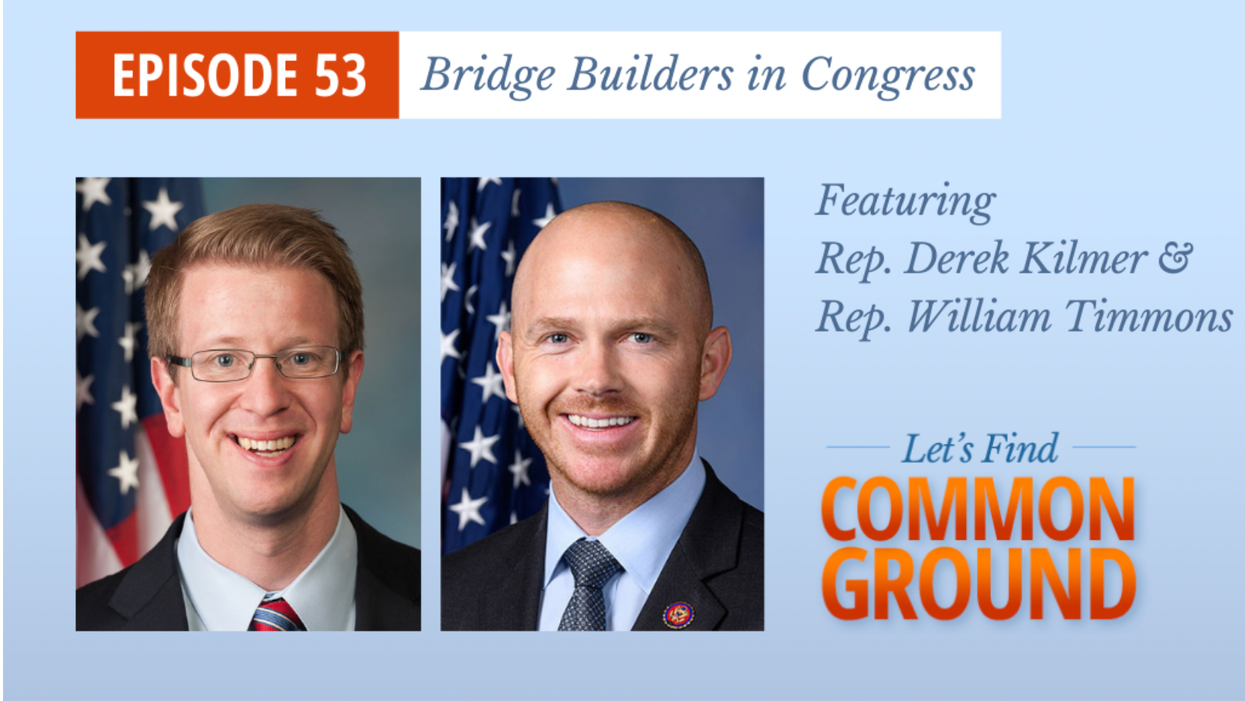Polarization and division in the United States have reached such a point that they threaten our strength domestically and overseas. But today, bridge builders in Congress are making a concerted effort to work across the aisle and find common ground.
In this podcast episode of “ Let’s Find Common Ground “, Common Ground interviews two House members—Democrat Derek Kilmer and Republican William Timmons—about their support for The Building Civic Bridges Act and their work together on the House Select Committee on the Modernization of Congress.




















Trump & Hegseth gave Mark Kelly a huge 2028 gift